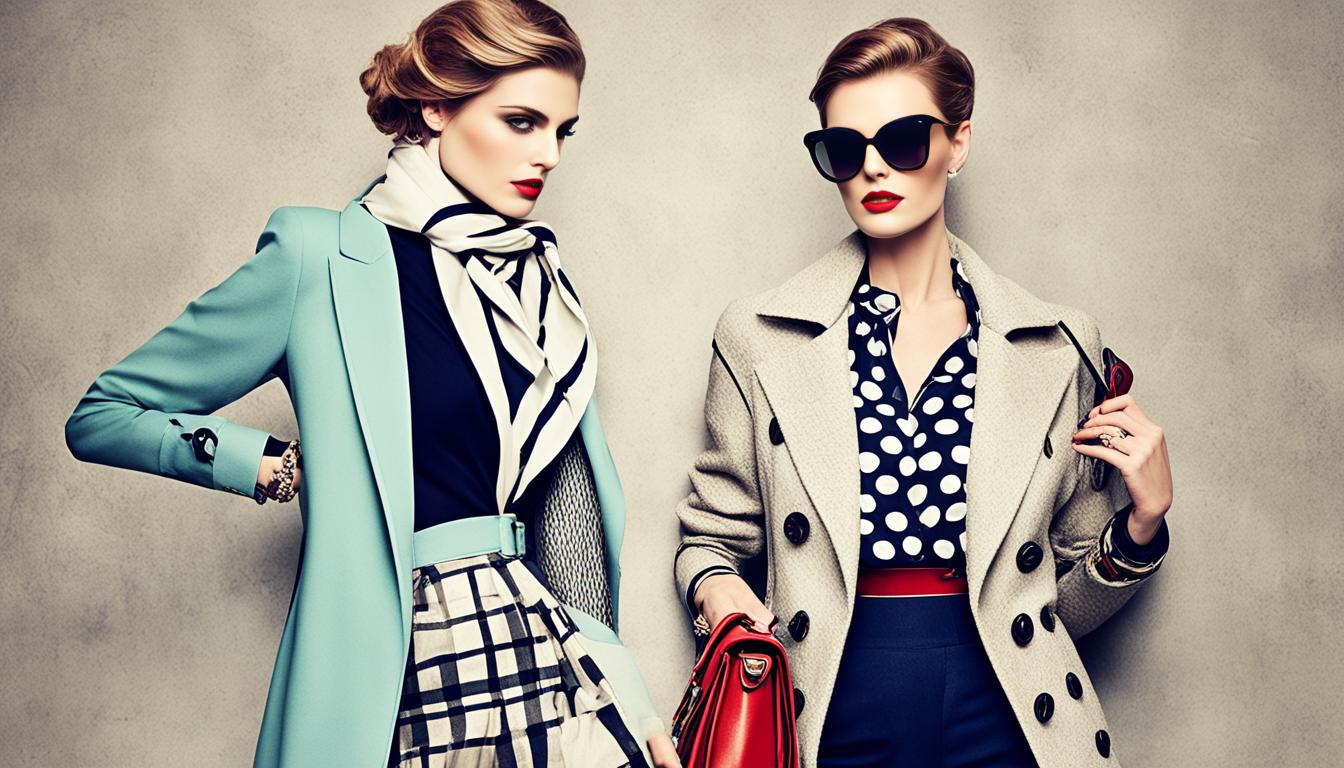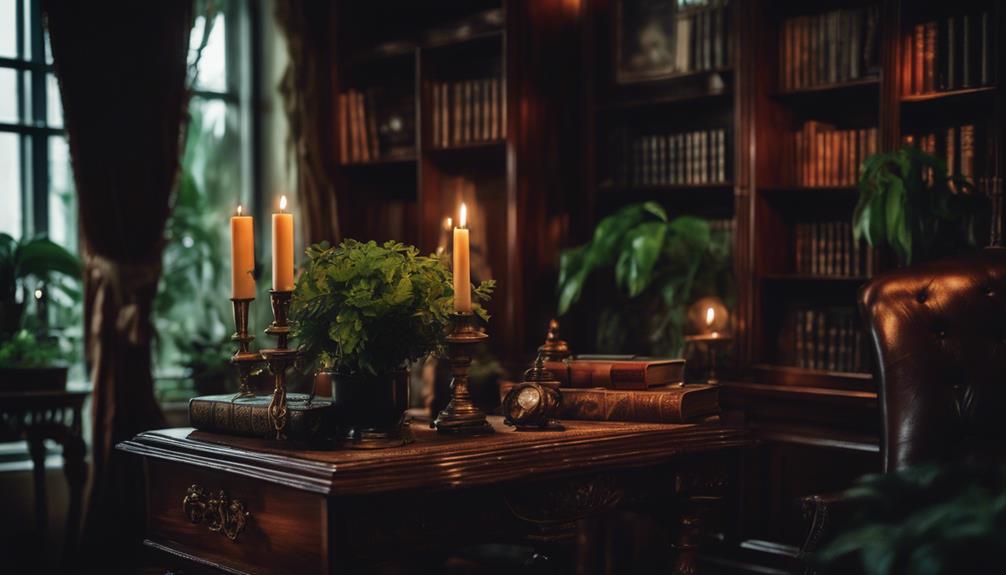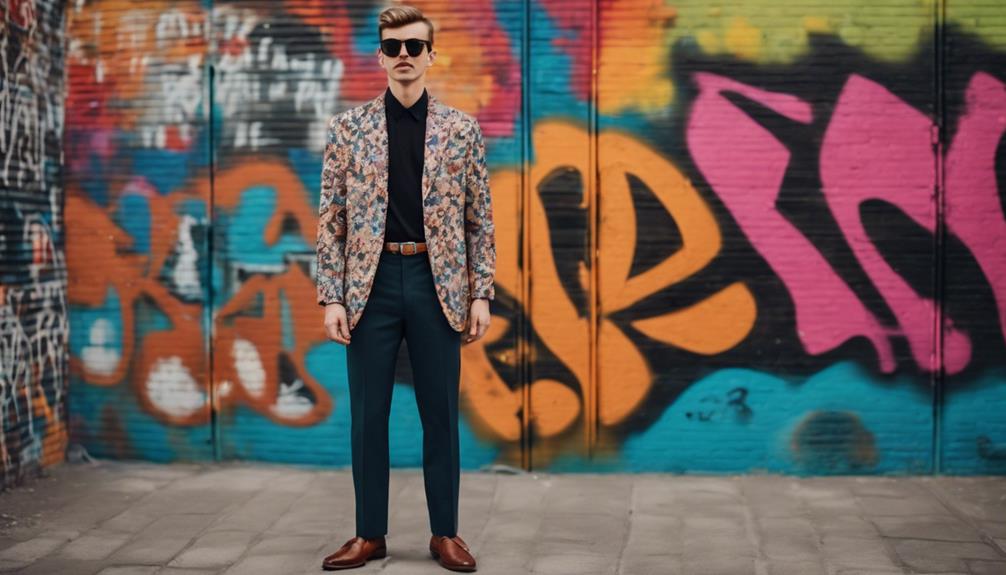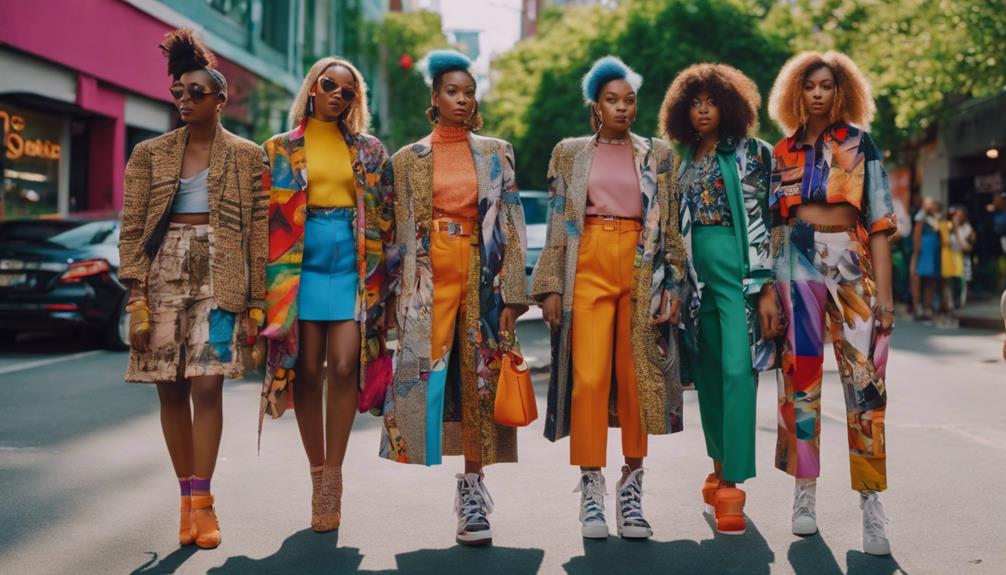Have you ever caught yourself gazing into your wardrobe, noticing clothes that you hardly ever wear? You may wonder, “What is my true style?” Discovering your personal style is a unique journey. It reflects your aesthetic preferences, values, and individuality. It’s all about using your clothing to express your true self to the world. In today’s fast-paced fashion industry, selecting clothes that authentically represent you is crucial in showcasing your true identity.
Many get lost in the latest fashion trends and buy things that don’t match their real selves. I’ve been there too but learned how important it is to let my style evolve. Each choice brought me closer to what I truly love. These pieces make me feel confident and alive. Now, I pick clothes that I truly enjoy, not just what’s trending. Think about where your style journey might lead you.
Key Takeaways
- Understanding your personal style starts with self-reflection and a focus on joy.
- It’s crucial to evolve your fashion choices over time, rather than sticking to trends.
- Curating a wardrobe involves identifying reliable pieces that bring joy and utility.
- Utilize platforms like Pinterest to explore inspiration and visualize your style.
- Consider tailoring clothing for the perfect fit to enhance your enjoyment.
- Invest in quality items that last rather than impulsively buying trendy pieces.
The Importance of Understanding Your Personal Style
Recognizing your personal style is key to expressing yourself. It helps you create a unique fashion story. This story is about showing off who you are through your clothes. Personal style is something you learn over time, not born with. As you explore and refine your style, you get to know what you truly like. This understanding boosts your self-image.
Defining Your Unique Fashion Narrative
Your fashion story is more than just clothes; it reflects your looks, culture, and beliefs. Knowing your personal style helps you know your favorite shapes, colors, and designs. When you own your fashion story, you understand how your clothes show off your identity. This improves your sense of style and makes you more genuine in how you present yourself.
Building Confidence Throughly Style
Style and confidence are deeply connected. Dressing in line with who you are brings a new kind of confidence. Getting to know your style also makes shopping fun. You get better at picking clothes that really fit you. Choosing carefully means you end up with great clothes that show who you are. Feeling good and confident in your clothes affects how others see you.
Finding Your Personal Style
Finding your personal style is a fun journey. It’s more than just brand names or high fashion. It shows who you are without speaking. Trying new styles lets you find what fits your true self.
Exploration and Experimentation
Start by playing with what’s in your closet. Mix things up to see what feels right. Think about what clothes you love and why. Asking friends for their thoughts can also help you see new patterns in your choices.
Identifying Your Fashion Inspirations
Look to your favorite celebrities or influencers for fashion ideas. Notice their unique styles and what you admire about them. Picking three words to describe your own style helps make your fashion goals clear. Think about what has inspired you before and bring those elements into how you dress now.

How Do You Explain Your Style?
Explaining your style is crucial for clear, confident self-expression. This guide will help you define and express your fashion sense. By identifying and articulating your preferences, you can share your unique style philosophy more effectively.
Articulating Your Aesthetic Choices
Understanding your personal style yet struggling to explain it is common. The difficulty often lies in lacking specific terms for your preferences. A workbook designed for personal style can help. It guides you through five steps: Assess, Sort, Get Real, Examine, and Define.
This approach makes you think about:
- Which clothes make you feel confident?
- The styles you love compared to those you don’t.
- How your clothes reflect your self-image.
Choose unique words over general ones. Words like confident, versatile, or responsible might describe how clothes make you feel. Using specific terms adds clarity when explaining your style to others.
Creating a Style Statement
Creating a strong style statement reflects your fashion philosophy. Aim for three to four words that truly speak to you. This makes explaining your style simpler, whether you’re shopping or introducing yourself.
If adventurous, sophisticated, and comfortable resonate with you, they lay a strong base for your identity. These words help when discussing your aesthetic preferences. If dissatisfied, think about renewing your wardrobe. For guidance and support, join the Style Lab with memberships starting at $7.
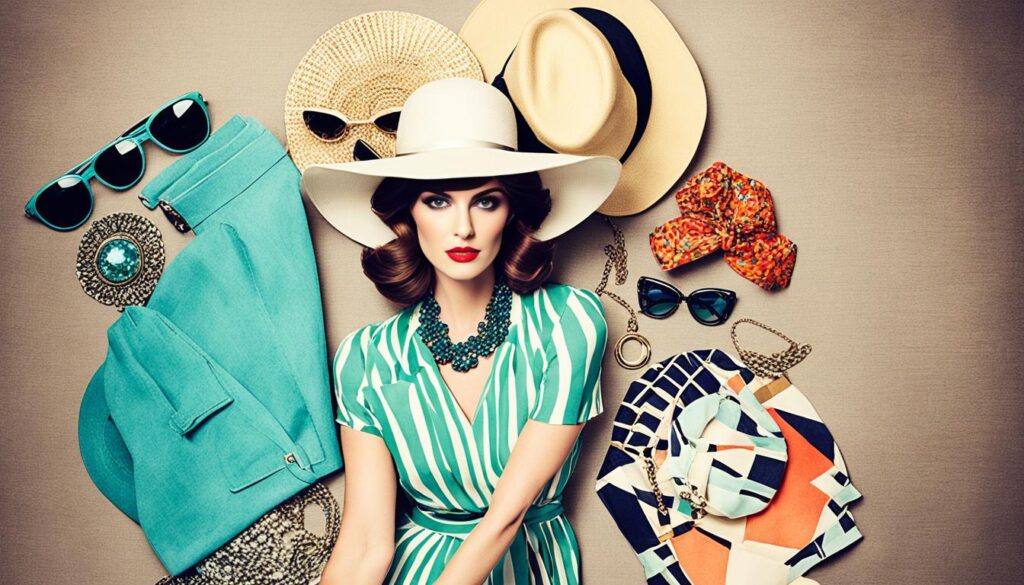
| Step | Description |
|---|---|
| Assess | Review what you currently own and love. |
| Sort | Isolate elements of style you enjoy or dislike. |
| Get Real | Identify your realities regarding style and dressing. |
| Examine | Reflect on influences and inspirations in your wardrobe. |
| Define | Choose 3-5 words to represent your personal style. |
Using this method empowers you to explain your style and let your fashion identity shine. By reflecting and choosing your words carefully, you can clearly share your aesthetic choices and fashion statement.
Recognizing Your Signature Pieces
Finding your signature pieces is key to showing off your style. They highlight what makes you unique and leave a mark. We’ll dive into the importance of easy-to-mix clothing and key accessories that round out your look.
Understanding Versatile Garments
Versatile clothes make your wardrobe work harder. They can be worn in many ways, so you don’t need lots of items. Take a classic wrap dress, like the ones Kate Middleton wears. It can be dressed up or down depending on what you add to it. Here are some items to mix and match:
- Blazers that can uplift any look.
- Basic tees that lay the groundwork for standout outfits.
- Denim jackets that are perfect for layering and bring flair.
Adding these items means you have the basics down pat. This lets your unique pieces really stand out.
Curating Essential Accessories
Accessories are the finishing touch and say a lot about you. Picking the right one can transform even a simple outfit. Grace Kelly showed us how small, but meaningful accessories could make a big statement. When picking out these key items, think about:
About 60% of people say their favorite accessories hold deep memories or feelings. Choosing the right versatile pieces and accessories helps you create a look that’s all you.
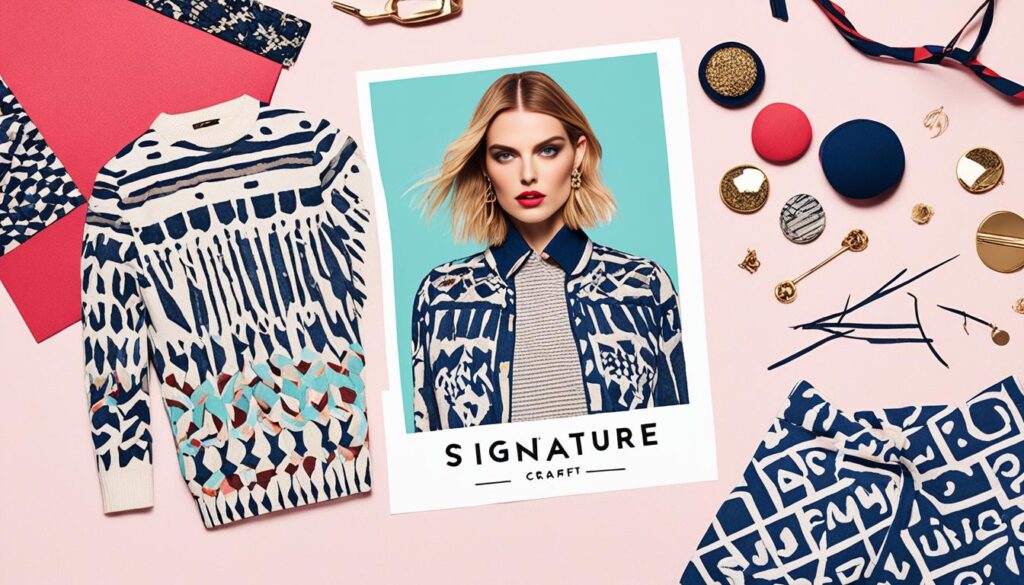
Style Personalities: Which One Resonates With You?
Understanding style personalities can make your fashion journey better. There are seven well-known style personalities. They help you find what fashion suits you. Each personality matches with different clothes, accessories, and fashion senses.
Identifying Different Style Types
Let’s look at the different style types:
| Style Personality | Definition | Typical Clothing | Accessories |
|---|---|---|---|
| Natural/Relaxed | Emphasizes comfort and ease. | Loose-fitting garments, comfy fabrics. | Minimalistic and practical. |
| Classic/Traditional | Values timeless designs and elegance. | Tailored suits, crisp blouses. | Simple yet sophisticated jewelry. |
| Artistic/Creative | Celebrates individuality and creativity. | Bold patterns, eclectic styles. | Unique handcrafted pieces. |
| Dramatic/Edgy | Emphasizes bold and striking elements. | Leather jackets, sharp silhouettes. | Statement pieces with an edge. |
| Romantic/Feminine | Focuses on softness and romantic elements. | Flowy dresses, lace details. | Delicate and floral accessories. |
| Alluring/Sexy | Highlights confidence and allure. | Body-hugging silhouettes. | Sparkling statement jewelry. |
| Modern/Chic | Embraces contemporary styles and trends. | Sleek cuts, minimalist designs. | Trendy, high-fashion accessories. |
Mixing Style Traits for a Unique Look
Sometimes, you might like parts of many style personalities. It’s cool to mix them for a look that’s all you. By adding pieces you love, your wardrobe shows who you are. It becomes authentic and flexible.
If you’re hunting for style ideas, try Pinterest. It’s great for finding what looks good on you. Being stylish is about mixing what you like, what’s in, and being comfy. That’s how your clothes look and feel amazing every day.
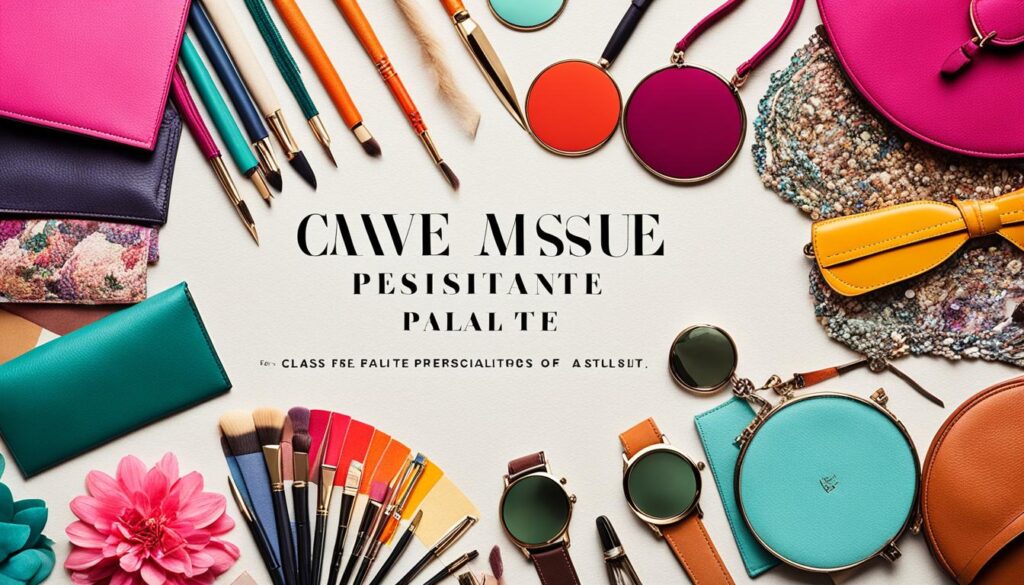
Evolving Your Style Over Time
Your personal style is always changing, based on life’s experiences. If you move for a job, start a family, or enter a new phase in life, you’ll need to adjust your style. It’s important to notice these changes. This helps keep your style up-to-date with who you are.
Adapting to Life Changes
Life’s big moments often make us rethink our clothes. High-impact events like a breakup or a new job can prompt a wardrobe revamp. Changing style isn’t just about new trends. It’s more about your changing life and how it affects your clothes choices.
Many people find their style changes every six months because of life’s events or routine changes. Embracing the pieces that feel right for you now helps evolve your style.
Maintaining a Cohesive Wardrobe
Having a wardrobe that fits your current likes and flexible nature is key. Picking pieces that work well together builds confidence. Focus on what’s stayed the same in your style, like favorite colors or patterns. Then, mix in items that let you try new looks. This keeps your evolving style true to you.
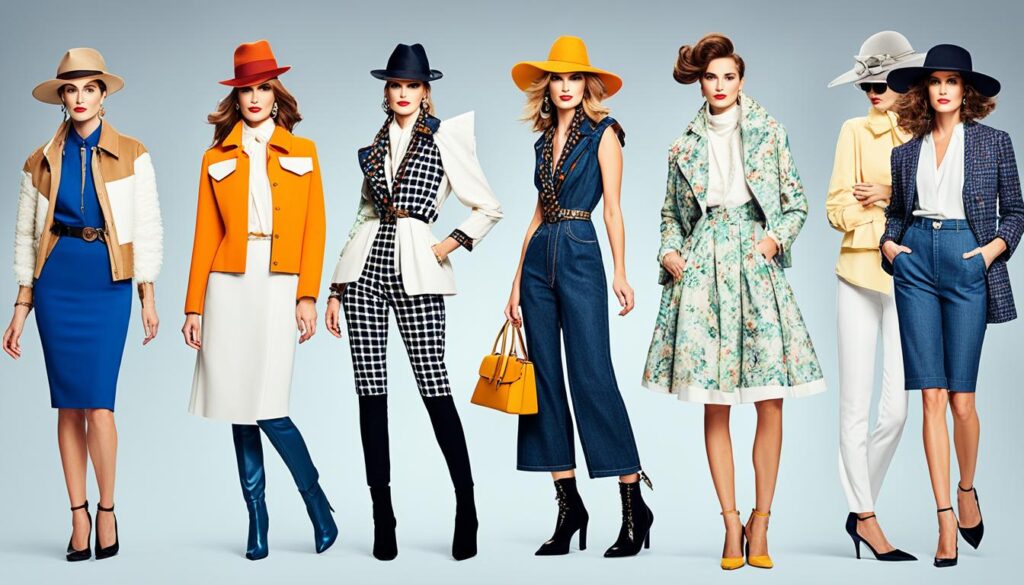
| Time Frame | Style Influences | Key Changes |
|---|---|---|
| 1 Year Ago | Comfort prioritization with relaxed fits | Incorporated neutral palettes for versatility |
| 5 Years Ago | Experimentation with bold patterns and bright colors | Shift toward more structured silhouettes |
| 10 Years Ago | Focus on standout pieces for maximum individuality | Wardrobe lacked cohesive vision, relied on statement items |
Reflect on your style and how much it has changed. Realizing how past influences have shaped your wardrobe gives insight into your fashion path. Embrace these shifts. This ensures your style grows well, staying true and coordinated.
How to Describe Your Style to Others
Describing your style can seem tough. You aim to share your fashion sense and connect with people. The right words paint a picture of your look and identity.
Using Key Descriptive Words
Choosing the right style descriptors is key. Pick adjectives that feel right to you. Many use the Three Word Method℠, mixing a baseline word, an aim, and a feeling word. It makes explaining your style simple but meaningful.
- Baseline Word: Shows your current style.
- Aspirational Word: Shows where you want your style to go.
- Emotional Word: Shows how your style makes you feel.
You might pick “casual” as your base, “elegant” for your goal, and “comfortable” for the feeling. These words help share your style clearly.
Engaging Friends for Feedback
Talking to friends about your style offers insights. They can say what your style reminds them of and help tweak your style descriptors. Ask them things like:
- What three words would you use for my style?
- Do my favorite and least favorite outfits fit my usual style?
- Do you see patterns in my style choices?
Open talks help find new ways to describe your style. Use their thoughts to adjust your three words, making sure they match you. This feedback not only boosts how you see yourself but also builds connections.
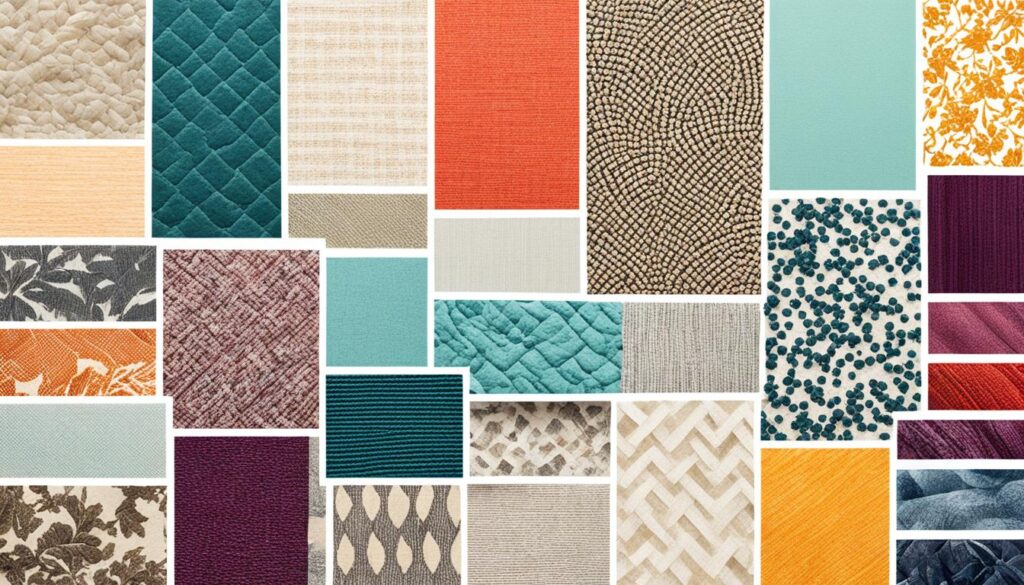
Tips for Incorporating Trends into Your Personal Style
Adding trends to your style is like walking a tightrope. You want to be up-to-date without losing your uniqueness. It’s key to know which trends fit your personal taste. Over 80% of people feel more themselves when they dress in a style true to them rather than just following the crowd.
Deciding What Works for You
Here are some tips to help you figure out which trends will blend well with your clothes:
- Evaluate existing items: Find trends that match what you already own to avoid buying things you don’t need. This also cuts down on wasting fashion.
- Focus on versatility: Around 60% favor clothes that work in many outfits. Seek out trendy pieces that can mix well with your current look.
- Stay true to love: About 70% go for styles they truly love, even if it means passing on current trends.
- Essentials matter: For 85%, staples lay the groundwork for their unique style. Choose timeless over trendy for a more personal fashion statement.
Avoiding Trend Overload
Using trends wisely prevents your style from getting lost. Here’s how to keep it authentic:
- Curate your wardrobe: Some 65% match new items with trends they already have. This keeps your style narrative clear.
- Invest wisely: With a lean towards quality, select brands that last longer. This promotes being stylish and sustainable.
- Acknowledge your preferences: Roughly 75% stick with certain colors and styles no matter what’s in vogue. Staying consistent helps keep a unified look.
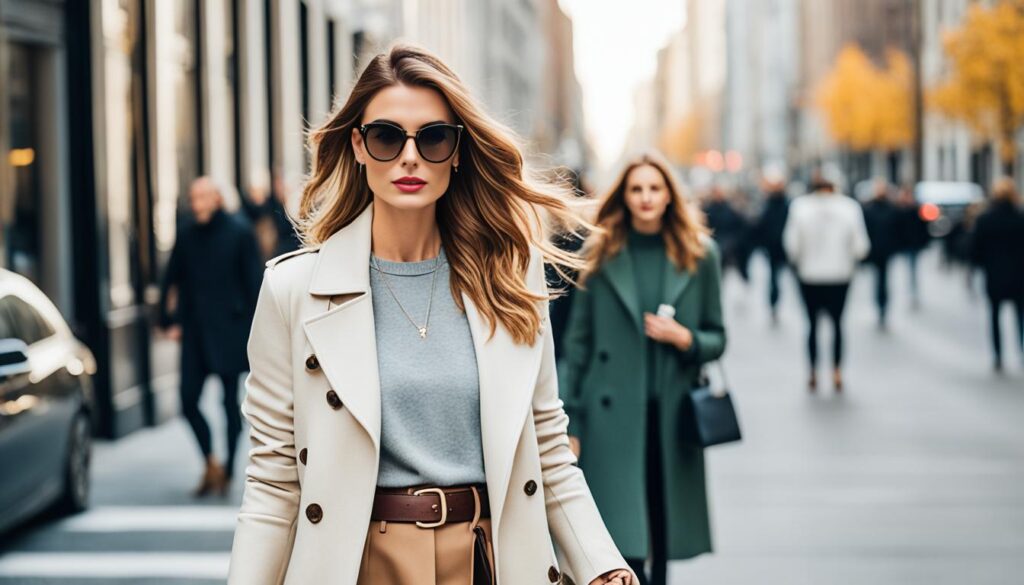
Taking a mindful route when adding trends boosts your wardrobe and your confidence in style. It lets your authenticity be the star of every outfit you choose.
Building a Wardrobe That Reflects Your Style
Creating a wardrobe that truly shows your style starts with careful choices. Choose quality over quantity to invest in clothes that look great and last. Having key pieces, like Steve Jobs’ jeans and turtleneck, makes dressing simple and lets your unique style shine.
Choosing Quality Over Quantity
Choosing quality clothes boosts your style and confidence. A smaller, well-chosen wardrobe reduces stress in picking what to wear. To build a purposeful wardrobe, consider these tips:
- Invest in classic staples such as blazers from M.M.LaFleur or reliable jeans from Levi’s.
- Practice intentional shopping; create a wish list of essential items you need.
- Keep only the pieces that resonate with you by cleaning out your closet periodically.
Embracing Sustainable Fashion Choices
Sustainable fashion aligns your wardrobe with your values while benefiting the planet. Choosing ethical brands supports fair work and reduces environmental harm. Embrace sustainable fashion by:
- Engage in thrifting and support local boutiques to discover unique items.
- Incorporate versatile pieces that can be mixed and matched, reducing the need for excess clothing.
- Create a vision board to visually capture styles that inspire you while focusing on sustainable options.
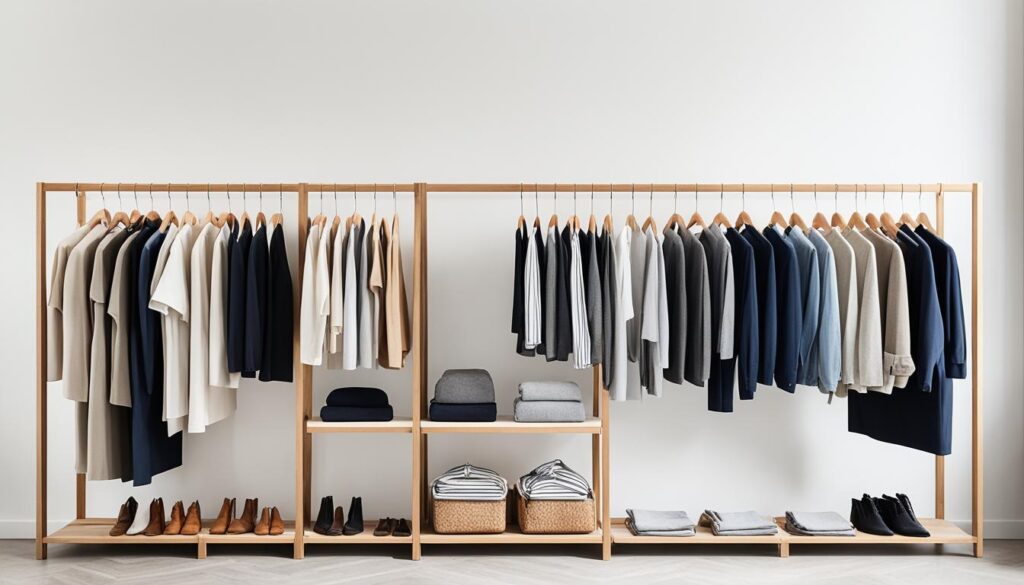
Building a wardrobe is manageable with focused and sustainable choices. Your wardrobe can mirror your style and values effectively.
Using Visual Tools to Define Your Style
Defining your personal style is both fun and life-changing. Using style boards and mood boards helps you pick an aesthetic that’s all your own. These tools let you visually lay out what styles you like best.
Creating a Style Board or Mood Board
It’s a good plan to make a style or mood board to sort out your fashion ideas. Use magazine pictures, photos, color palettes, and fabric pieces to create a picture of what you love. Notice which themes and looks keep popping up. This helps you see which clothes, colors, and styles you really like. It makes understanding your fashion choices easier.
Utilizing Social Media for Inspiration
Instagram and Pinterest are great for finding fashion ideas. Follow influencers and brands to see new trends that might suit you. Make boards that match your style dreams, making sure they show what you love. Using these tools helps change up your wardrobe in ways that express who you are. Try to blend ideas from your board into your daily looks to keep your style consistent.
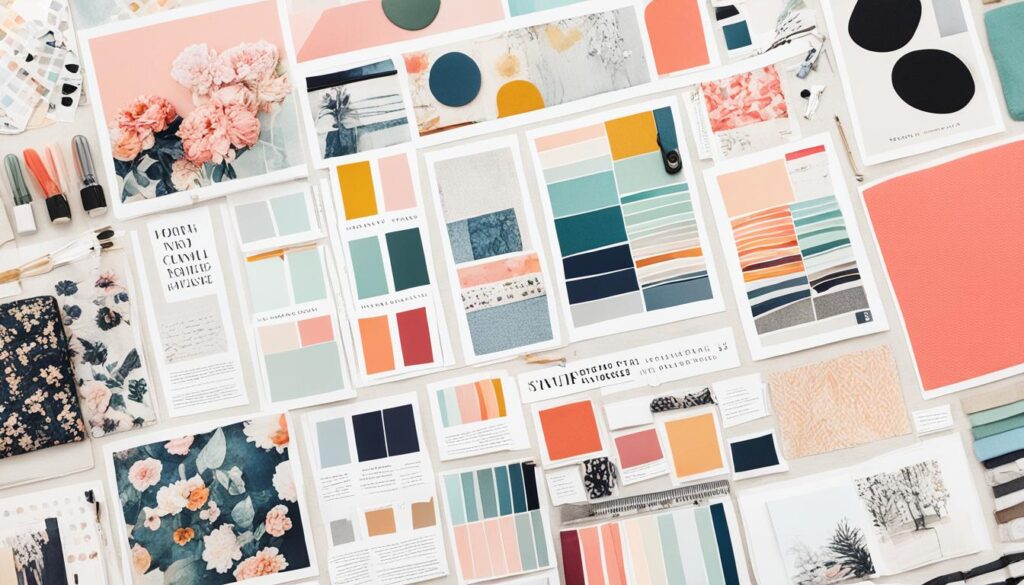
Conclusion
Your personal style is more than just clothes. It’s a key part of who you are. As you grow, your style will change and develop. It invites you to try new things and express yourself.
Think about what we’ve talked about. Remember the importance of knowing your favorite pieces and how to share your style with others. By bringing these ideas together, you can build a wardrobe that matches your taste and values. Remember, your style will evolve based on your life and what inspires you.
In the end, what’s most rewarding is that your style shows the real you. Don’t be afraid to change and try new things. Your personal style is a unique way to show who you are. Keep celebrating your uniqueness and sharing it through the power of fashion.
